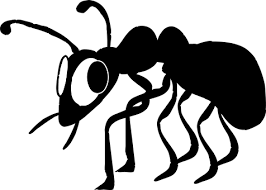Toward the Quitting of the Ant Game and the Encoding of 'Thou Shalts'... An Open Letter to BJ Campbell

Hi BJ,
I'm a nobody thinker playing the ant game at the peasant level with some struggled thoughts as to how we can play a different game, and i'm hoping perhaps we might enter into a dialogue about this and help to flesh out one anothers ideas. The paragraphs that follow are full of a bunch of concepts, but the main purpose in my writing you is to get your help in coming to an understanding that can explain these ideas to a 6 year old, as Einstein would have us do. And then to hopefully implement them by some means which i cannot foresee as yet. My hypothesis is this: Every system encodes values and ethics, or morals. And the ontogenesis of money is somewhere near the bottom of our nested conditioning. Thus, the new "Book of Thou Shalt Nots" might be effectively written in the design of money itself.
I became familiar with you just this week due to The Stoa podcast and your discussion with Jordan Hall. Referencing that conversation, you discussed the need of the Game B community to operationalize a new set of 'thou shalt nots'. I believe that could be done through a redesign of what money is made of. First a few background ideas that lead me to that hypothesis, then i'll explain a little about what i mean.
The background: Every system encodes an ethos of sorts by virtue of the way that system functions, and we act as if that ethos is true, and then eventually come to believe the ethos is true (whether consciously or unconsciously) because every system rewards certain behaviors and punishes others, and any system we are acting within is a set of conditions which necessarily condition us. Modern schooling for example encodes several things. Being on time is good, being late is bad. Listening to authority is good, questioning authority is bad. Doing what you are told to do is good, doing what you want to do is bad. Learning what you are told to learn is good, you get the picture. That is an ethical system, or a moral one if you want to be fussy about the distinctions. Or, one might say, the system has axiomatic propositions that in a subjected psyche become an ethic.
Okay, money does that as well at a super fundamental level. I think you see that clearly. So what is money made of? Currently it seems to be made of interest bearing debt; that is a promise to pay back more of it. Are you with me here? If not, here is my go-to quote that i hope can allow us to settle that as an unquestionable and verifiable fact: "Of the two types of broad money, bank deposits make up the vast majority — 97% of the amount currently in circulation.(6) And in the modern economy, those bank deposits are mostly created by commercial banks themselves." - The Bank of England quarterly published 2014 (https://www.bankofengland.co.uk/-/media/boe/files/quarterly-bulletin/2014/money-creation-in-the-modern-economy)
To translate (i hope accurately): a commercial bank says there's more money by carving it into their tally stick when someone comes in and says, "Hey, i've got a great idea to put even more marks on your tally stick!"
That fact, i think, encodes economic growth for the sake of economic growth as unquestionably good. And so it's good to have two income households with 30 year mortgages instead of one income households with 15 year mortgages like perhaps in say the 50's, roughly speaking. It's good to have daycares and old folks homes to care for young and old people instead of your community, which used to perform that function, continuing to do so. It is encoding 'thou shalts' (and every 'thou shalt' encodes a corresponding 'thou shalt not'). My question/ idea is that if money can be created from a promise to pay back more of it, can it not in fact be created from genuine human values?
What if the way money came to be was not a promise to pay back more of it? What if it came to be in intrinsically valuable ways? Understand, i am not proposing we use debt based money to say incentivize people to regenerate degraded ecosystems. Debt based money, i argue, is already incentivizing ripping down those ecosystems. I am proposing that the money comes into being as the intrinsically valuable behaviors we want to see are performed, or after they are performed. Then those who create things that we want (iPhones, cake, videogames, movies, etc...), rather than things that we desperately need for antifragility, would compete for that money. Do you think such a system could encode, at least in part, your proposed book of "Thou Shalt Nots"? If so, then what performed values do you think should be included as generator functions of money in order to enact an antifragile, flourishing, wellbeing creating, deeply meaningful, and biodiverse community, state, national, and/or world sphere? And, what strategic moves are necessary to ensure that that money out-competes debt based money?
A couple of things i've written trying to tie this thing down in my remote corner of internet dirt:
https://steemit.com/experientialinquiry/@themillionthings/an-open-letter-to-bret-weinstein
Hoping to hear from you, and my very best,
The Million Things